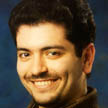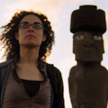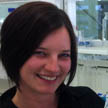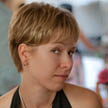I’m a Scientist is like school science lessons meet the X Factor! School students choose which scientist gets a prize of $1000 to communicate their work.
Scientists and students talk on this website. They both break down barriers, have fun and learn. But only the students get to vote.
This zone is the Organs Zone. It has scientists studying health and disease in various parts of our bodies. Who gets the prize? YOU decide!









I think the most difficult thing about science for me the waiting. In the science I do, the experiments often take days or weeks to comp,eye, and often I can’t look at the results until they are finished (often I have someone disguise the experiment so that I don’t know which group is which so that there is no “bias”).
I get impatient and am always excited about what the result may be, so the waiting is hard. It’s also hard if you do a long experiment and right at the end doesn’t turn out the way you thought it might. But that’s part of the science game and the great days make up for all of that!
1
There is a lot of waiting. Absolutely!
At the same time, there are a lot of distractions. You can find something, and then you start thinking about all the experiments you can do to show this and that. By doing this you get distracted from finishing what you were doing at the beginning. I have this problem! LOL
I get distracted easily….
0
Hannah good point!
It is very important not to have “bias” or show favor for a particular outcome/result (b/c it supports your ideas) and something that we have to be careful about with science.
The aim of a scientist is to try and disprove their hypothesis/question- the experiments help to answer the question based on the evidence which has been collected – not just what you expect to happen. Lots of important discoveries in science are actually about finding out that something doesn’t work the way you assumed.
It creates more questions and more work but is a very important and challenging part of being a good scientist!!!
0
Today….finding funding. Money is tight in Australia (and in most places around the world). We spend as much time writing grants to get money as we do actually doing research.
0